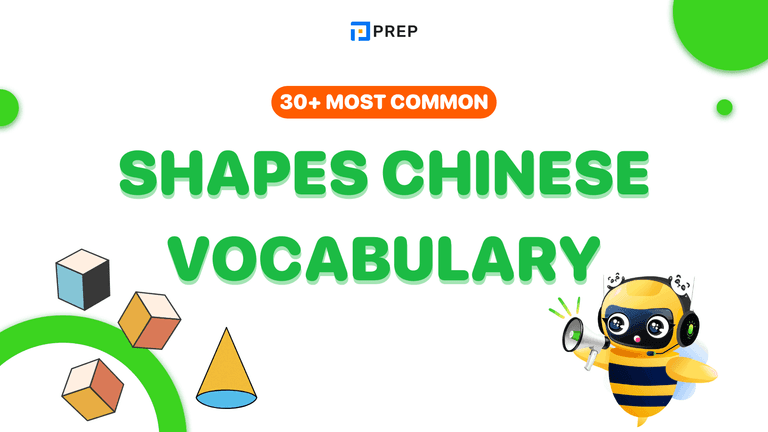Irregular verbs in English, the past tense of Catch: Catch - Caught - Caught
The verb Catch is a commonly used irregular verb in English. However, its base form, simple past, and past participle forms are not identical. In this article, we will examine how to properly use and conjugate the past tense of Catch in different tenses, and dive into useful phrasal verbs and idioms associated with it.

I. What is Catch?
Before we focus on the past tense of Catch, let's take a moment to understand its meaning and usage in English.
Catch is transcribed as /kætʃ/, functions as a verb with several meanings, including:
|
Meaning |
Example |
|
To capture or seize something suddenly or unexpectedly. |
Jack tried to catch the ball, but it slipped through his hands. |
|
To apprehend or stop someone, especially a criminal |
The police caught the thief after a long chase. |
|
To reach the same standard or level as someone or something after falling behind |
I need to catch the 5 o’clock train. |
|
To become infected with an illness |
He caught a cold from his coworker. |
|
To see or hear something at the right moment. |
Did you catch the news last night? |
|
To attract attention or interest |
That advertisement really caught my eye. |
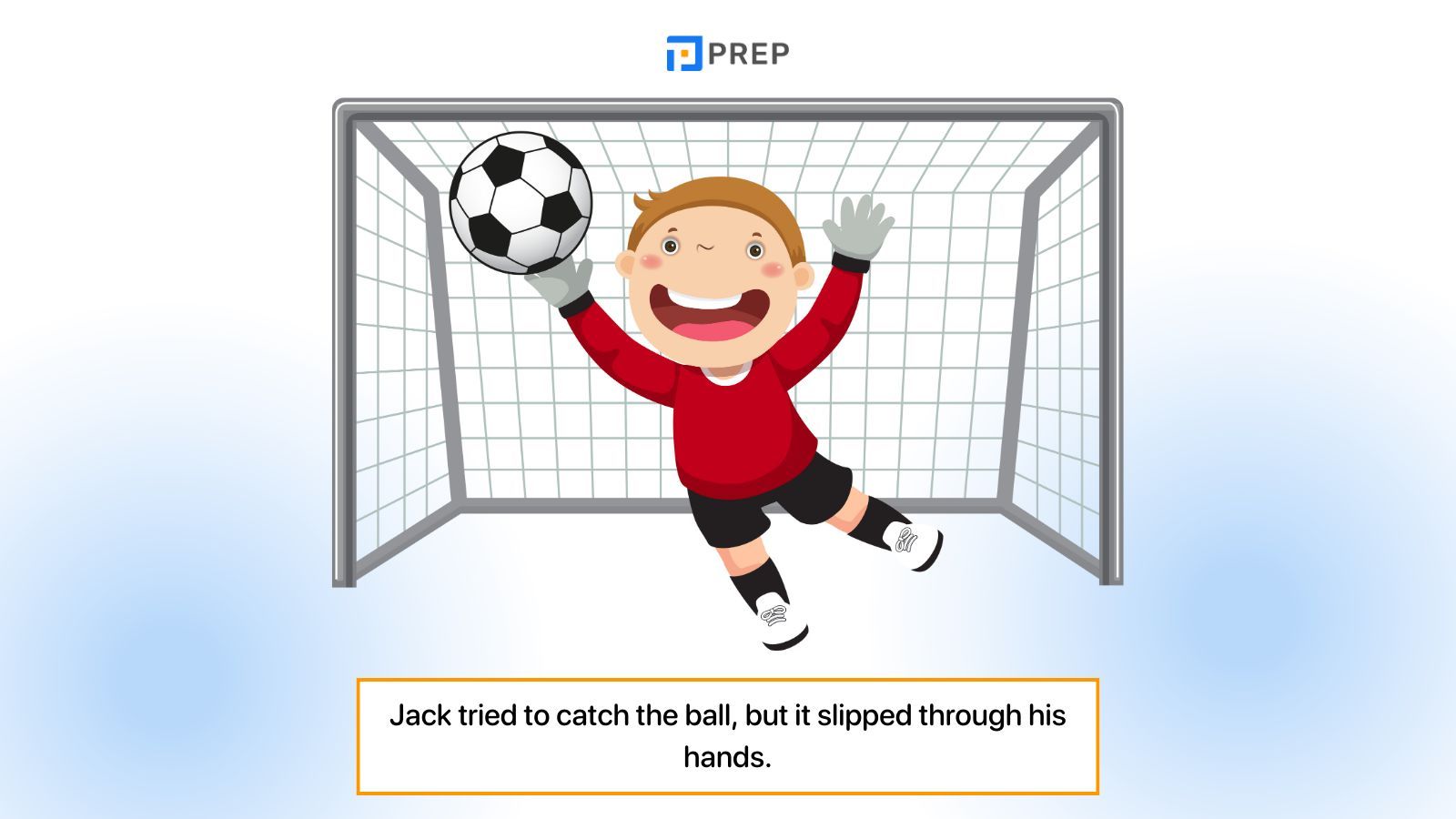
II. What are the V0, V2, and V3 forms of Catch? The past tense of Catch in English
What is the past tense of Catch? V0, V2, and V3 are abbreviations for Base form, Simple past, and Past participle of Catch. Let’s take a closer look at the V0, V2, and V3 forms of Catch in the table below!
|
Verb form |
Example |
|
|
V0 |
Catch /kætʃ/ |
The policeman catches the theft. |
|
V2 |
Caught /kɑːt/ |
The policeman caught the theft yesterday. |
|
V3 |
Caught /kɑːt/ |
The policeman has caught the theft for 5 hours. |
Catch past tense and past participle are: Catch past simple is Caught and past participle of Catch is Caught.
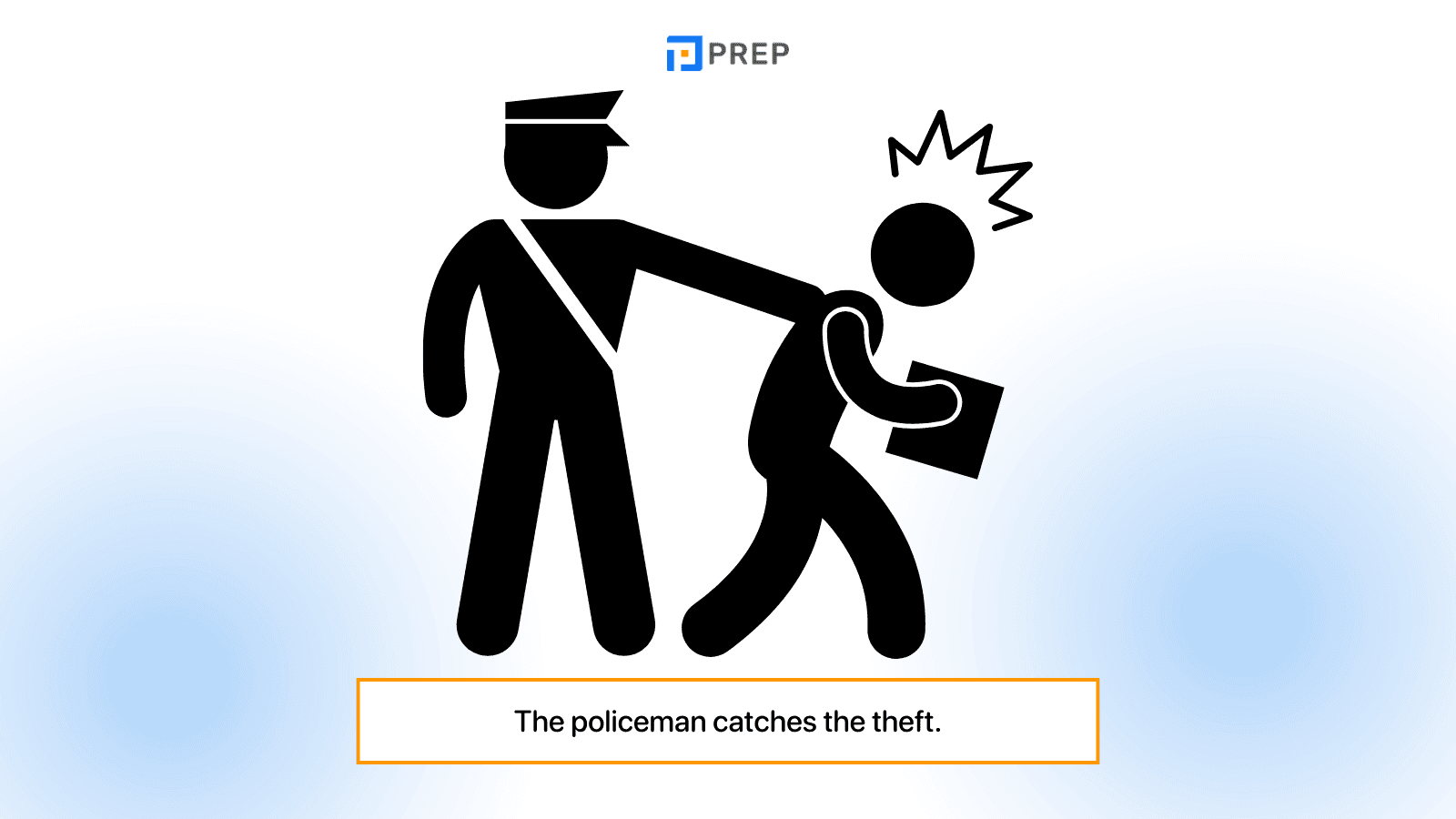
III. How to conjugate the verb Catch
Now that you know the past tense and past participle forms of “Catch” are both Caught, it’s time to explore how this irregular verb is conjugated in different English verb tenses and sentence patterns. Mastering these forms will help you use the verb accurately in both spoken and written communication.
Let’s break down how “Catch” changes depending on the tense and structure:
1. In the tenses
We will review how "Catch" is conjugated in each of the 12 tenses, ensuring that you are comfortable using it in a variety of contexts.
|
12 tenses in English |
I |
He/She/It |
We/You/They |
|
Present simple tense |
catch |
catches |
catch |
|
|||
|
Present progressive tense |
am catching |
is catching |
are catching |
|
|||
|
Present perfect tense |
have caught |
has caught |
have caught |
|
|||
|
Present perfect progressive tense |
have been catching |
has been catching |
have been catching |
|
|||
|
Past simple tense |
caught |
caught |
caught |
|
|||
|
Past progressive tense |
was catching |
was catching |
were catching |
|
|||
|
Past perfect tense |
had caught |
had caught |
had caught |
|
|||
|
Past perfect progressive tense |
had been catching |
had been catching |
had been catching |
|
|||
|
Future simple tense |
will catch |
will catch |
will catch |
|
|||
|
Future progressive tense |
will be catching |
will be catching |
will be catching |
|
|||
|
Future perfect tense |
will have caught |
will have caught |
will have caught |
|
|||
|
Future perfect progressive tense |
will have been catching |
will have been catching |
will have been catching |
|
|||
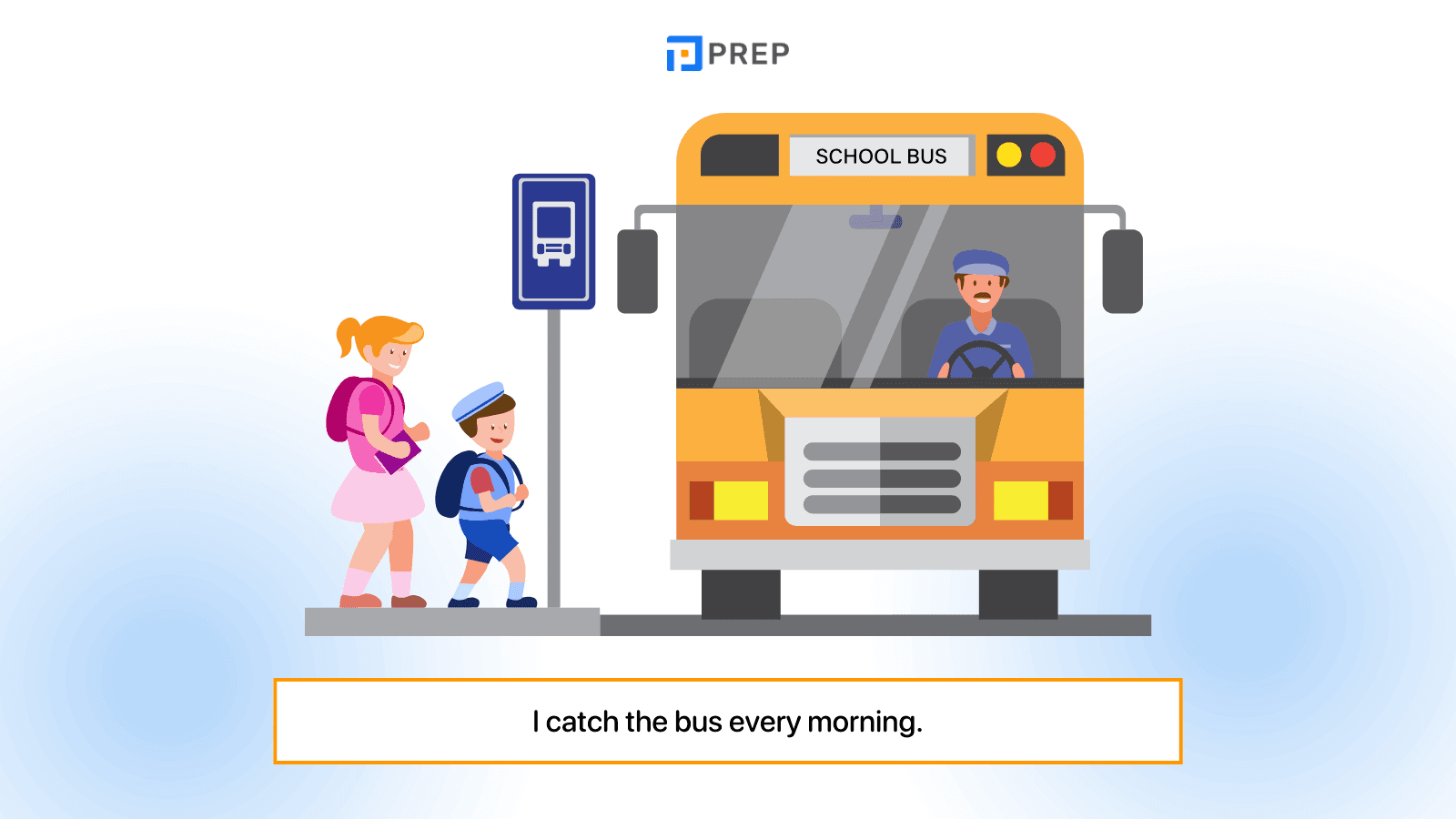
2. In special sentence structures
It is also important to understand how "Catch" is used in certain sentence structures, such as the passive voice or with modal verbs. These variations will help you use "Catch" more fluently.
|
Special Structure |
I |
He/She/It |
We/You/They |
|
Conditional Sentences |
|||
|
Second conditional - Main Clause |
would catch |
would catch |
would catch |
|
|||
|
Third conditional - Main Clause |
would have caught |
would have caught |
would have caught |
|
|||
|
Subjunctive |
|||
|
Subjunctive expressing present situation |
catch |
catch |
catch |
|
Subjunctive expressing present situation contrary to fact |
caught |
caught |
caught |
|
Subjunctive expressing past situation contrary to fact |
had caught |
had caught |
had caught |
|
Example |
|
||
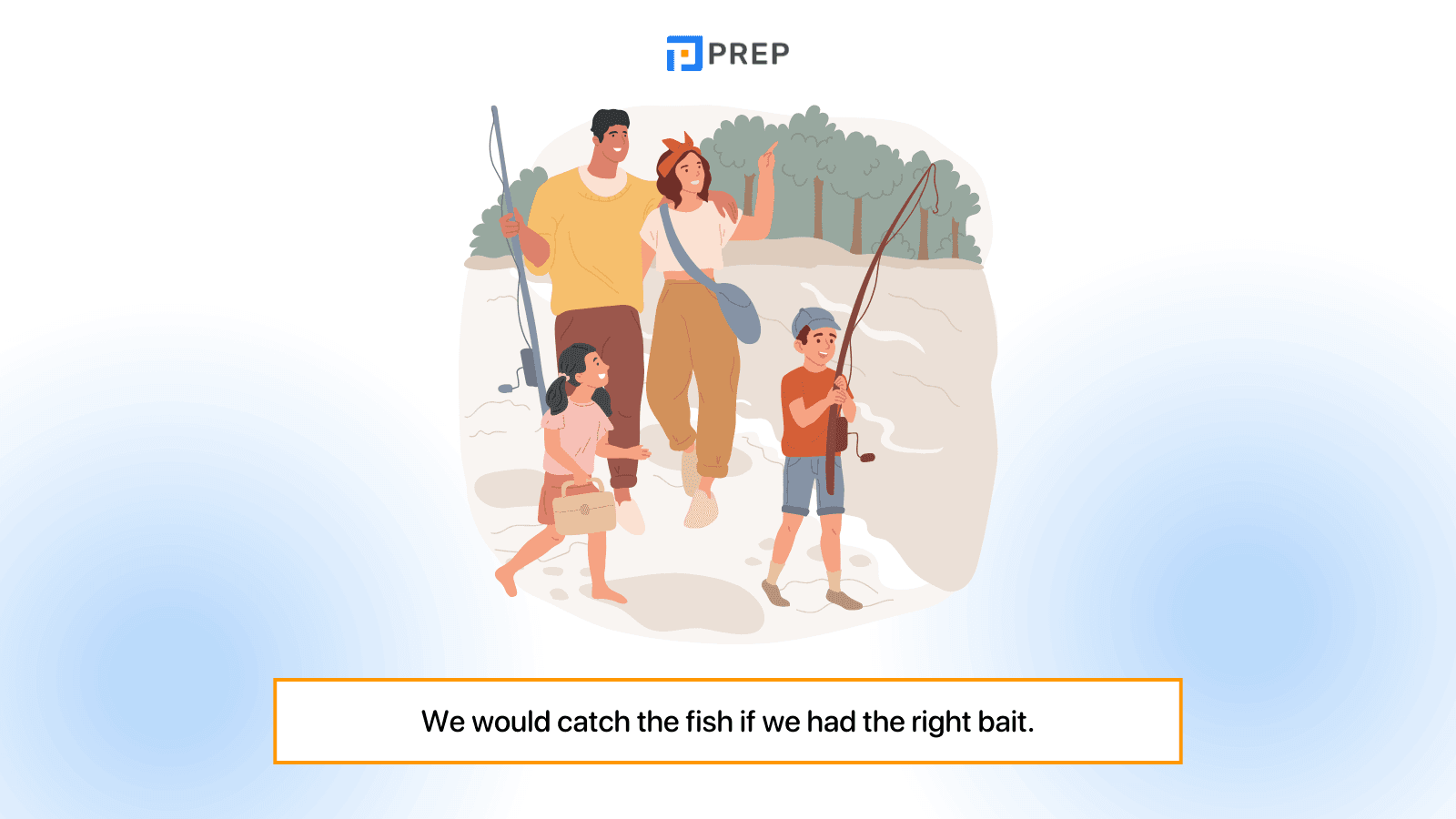
IV. Phrasal verbs with Catch in English
In addition to understanding the past tense of Catch, let’s take a look at some common phrasal verbs involving this verb. These expressions are frequently used in everyday English and can greatly expand your vocabulary.
|
Phrasal Verbs with Catch |
Meaning |
Example |
|
Catch up |
To meet someone to discuss recent events or to update each other on news and information. |
John wanted to catch up with his old friends over coffee. |
|
Catch on |
To understand something, especially a concept, idea, or trend. Example: It took a while, but he finally caught on to the joke |
Sarah finally caught on to the joke after a few minutes. |
|
Catch out |
To discover or expose someone when they are doing something wrong or dishonest. |
The teacher caught Tom out when he was cheating on the test. |
|
Catch up with |
To come close to someone or something, especially in a race or competitive situation. |
Emily ran fast to catch up with her friends at the park. |
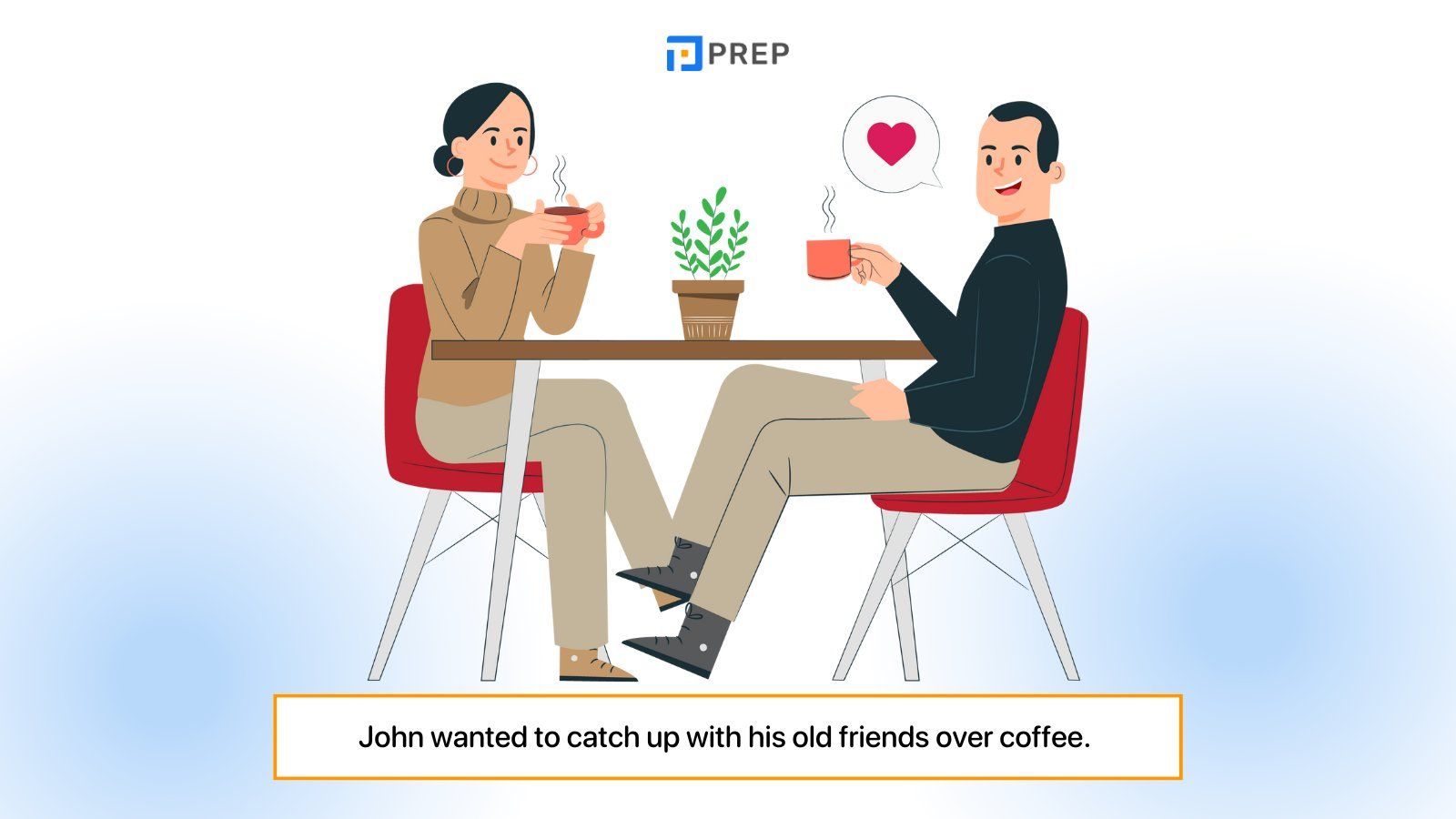
V. Idioms with Catch in English
Alongside its primary uses, "Catch" is also found in several idiomatic expressions. These idioms often have meanings that differ from the literal definition of the word. Let’s explore some of the most common idioms involving "Catch".
|
Idioms with Catch |
Meaning |
Example |
|
Catch someone's eye |
To attract someone's attention. |
The colorful painting in the gallery caught Maria's eye. |
|
Catch a break |
To have good luck or a favorable opportunity after a period of difficulty. |
After months of job hunting, John finally caught a break with a great offer. |
|
Catch someone off guard |
To surprise someone or to catch them unprepared. |
The sudden announcement caught Sarah off guard during the meeting. |
|
Catch the drift |
To understand the meaning or main message of something. |
After listening to the conversation, Emily finally caught the drift of the discussion. |
|
Catch some Z's |
To get some sleep or to rest. |
After a long day, Mark needed to catch some Z's before his next meeting. |
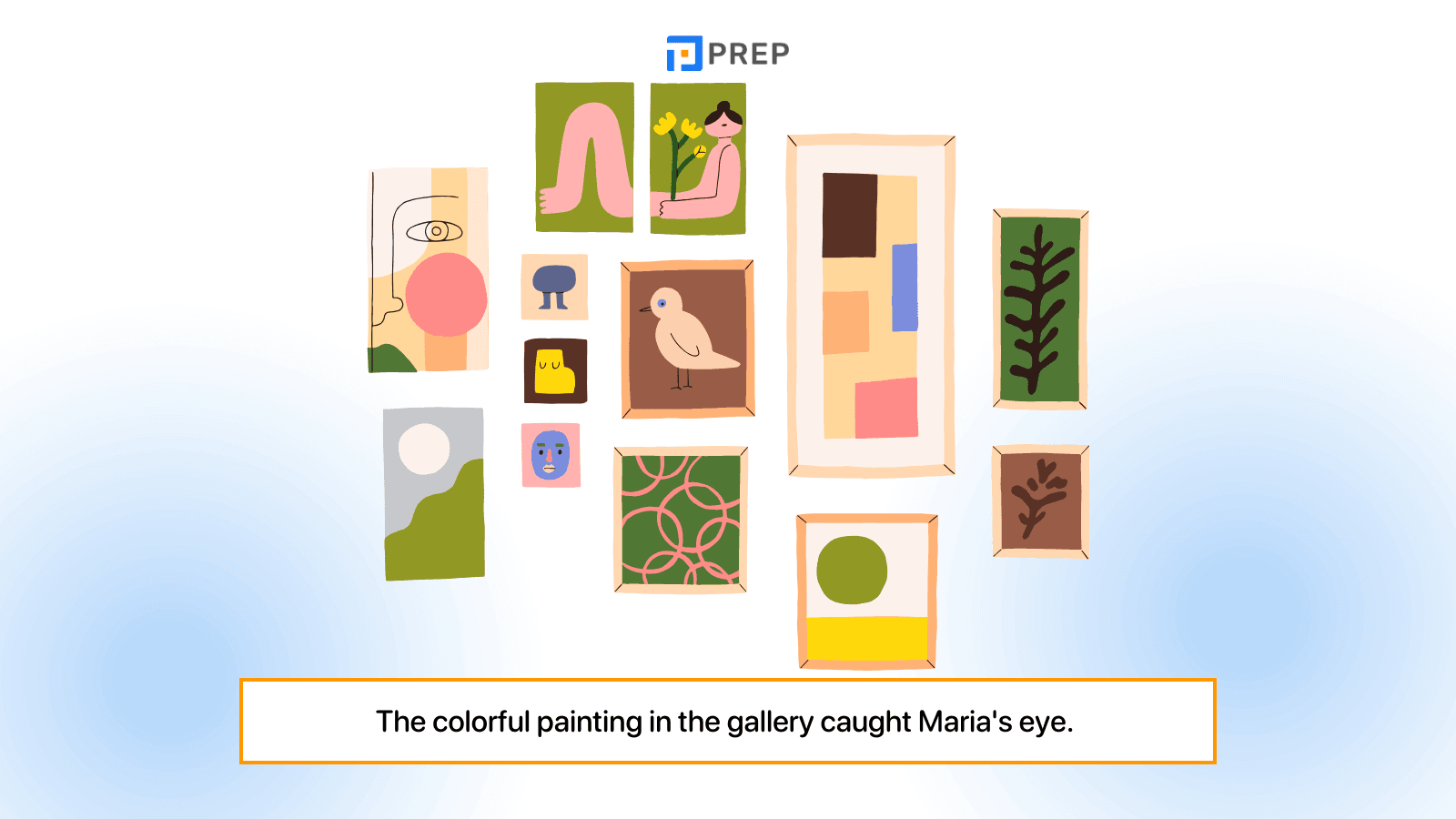
VI. Exercise on applying the past tense of Catch with answers
To consolidate your understanding of the past form of Catch, try completing the exercise below. This will help reinforce your knowledge and ensure that you can correctly apply the verb in context.
1. Exercise: Conjugate the verb "Catch" in the following sentences
-
Yesterday, I ___ (catch) a cold.
-
Right now, Bella ___ (catch) the ball during practice.
-
John usually ___ (catch) the bus at 8 AM.
-
They ___ (catch) the train last week.
-
By next year, we ___ (catch) up with the competition.
-
If it rains tomorrow, I ___ (catch) a taxi instead of walking.
-
I ___ (catch) the flu last winter.
-
Anna ___ (catch) the kids before they ran away.
-
We ___ (catch) a great movie last night.
-
Linda has ___ (catch) several fish this summer.
2. Answer key
|
|
By reading this article, you should now have a clear understanding of the past tense of Catch, its usage in different tenses, and its common idioms and phrasal verbs. Stay tuned with PREP to continue enhancing your English language skills!

Hi I'm Chloe, and I am currently serving as an Product Content Administrator at Prep Education. With over five years of experience in independent online IELTS study and exam preparation, I am confident in my ability to support learners in achieving their highest possible scores.
Comment
Premium content
View allPersonalized roadmap
Most read











